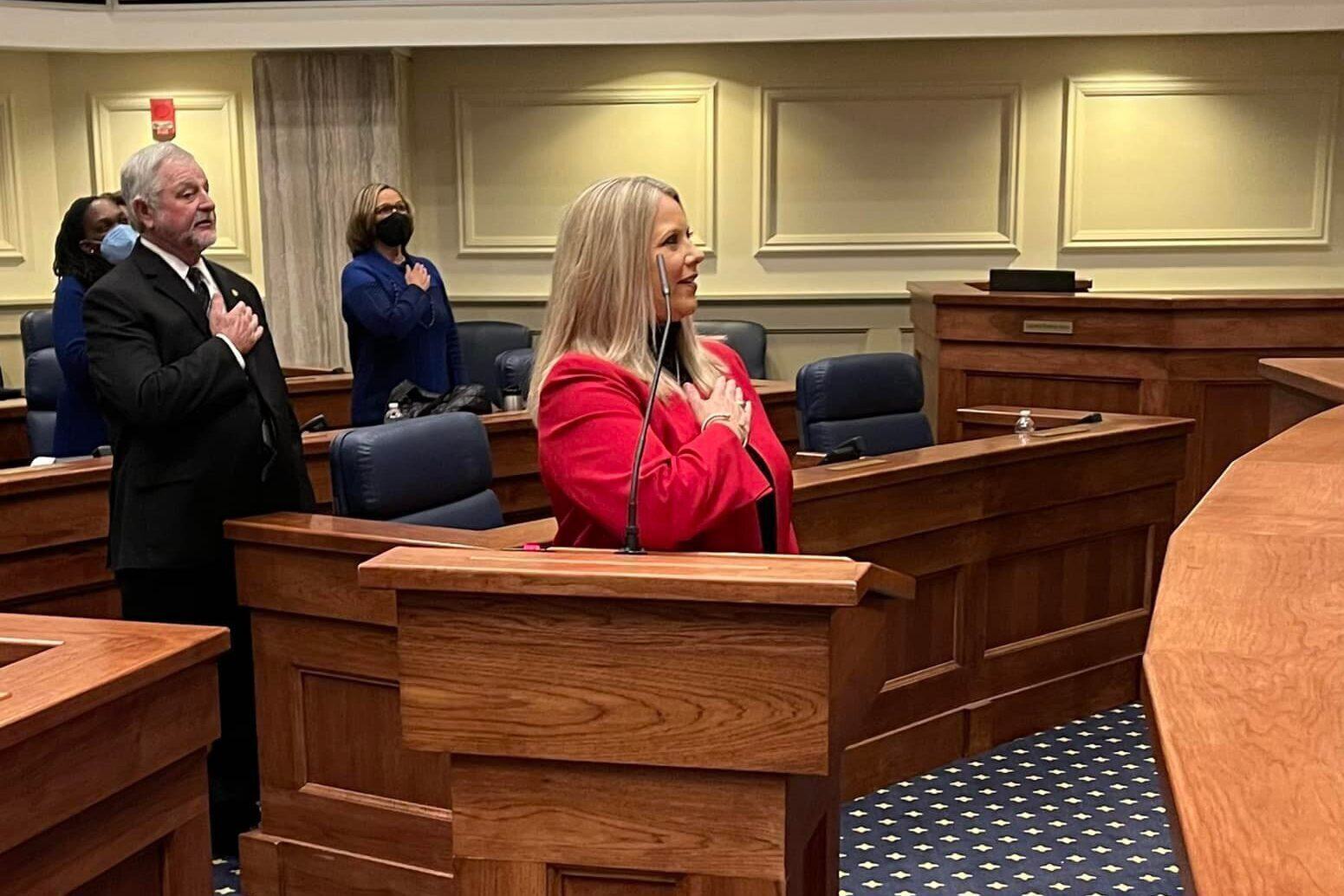State Sen. April Weaver (R-Brierfield) is prioritizing Alabama's so-called "good time laws" in the upcoming legislative session to prevent the premature release of dangerous inmates from prison.
In June 2022, Bibb County Deputies Brad Johnson and Chris Poole were shot in the line of duty by a recently released inmate and repeat felon, Austin Patrick Hall. Poole was discharged from the hospital soon after, but Johnson succumbed to his wounds the following day.
After the shooting, Gov. Kay Ivey, Attorney General Steve Mashall and others expressed condolences to the families and outrage that Hall was out on the streets.
Hall had a long rap sheet, with multiple felony convictions and charges while in the Alabama Department of Corrections (ADOC) custody. He received a 10-year sentence in 2018. Despite escaping a work-release program in 2019, he was released two months before the fatal shooting.
"A literal fatal flaw in Alabama's 'good time law' prompted Hall's premature release from prison even though he had previously escaped from a work release program and had other attempted escapes and violent actions on his record," Weaver said in an op-ed. "Had Hall served his full prison sentence as his behavior should have required, Deputy Johnson would still be alive today."
According to Weaver, Johnson and Poole are long-time family friends, so his death struck a deep chord for her and her family. She introduced Senate Bill 1 (SB1), which would hopefully prevent a similar event from occurring.
"It hit close to home for me, both emotionally and geographically, because Deputy Johnson was murdered essentially at the foot of our driveway," Weaver told 1819 News. "So I have been involved in the situation from the beginning."
SB1 is designed to amend the state's correctional incentive time laws, commonly called "good time laws." Good time laws allow inmates to accrue time off their sentence based on their classification and time served.
"Encouraging good behavior in prison by rewarding an inmate with days off of his sentence can make sense if done wisely, but today, the automatic revolving door nature of early release has removed the incentive altogether," Weaver continued.
Earlier this month, Ivey signed an executive order that gave ADOC officials a clear framework for distributing and removing good time from inmates.
"I certainly appreciate Governor Ivey paying attention to an issue that is so near and dear to my heart," Weaver continued. "I think it's a good first step in looking at how we need to reform the good time law, but I do believe it is the law that is flawed and needs to be fixed, which is why I introduced this legislation. The thing with an executive order is it can be changed with the stroke of a pen."
Despite the executive order, there currently are no laws on the books that dictate mandatory good time forfeitures for inmates who violate ADOC rules while incarcerated.
SB1 would codify into law specific criteria by which inmates forfeit their good time and also create an extended minimum period inmates must stay in their classification before being upgraded. The lower the classification, the more good time an inmate can receive for time served.
According to Weaver, the current unwillingness of ADOC officials to suspend good time when an inmate violates the rules is indicative of the change needed in the law.
"Accruing good time is currently treated as a rule that is rarely, if ever, suspended, not as a privilege that is earned only through compliant actions and proper behavior," Weaver said. "My legislation will clearly require all inmates to prove themselves for a set term of months before good time can begin to be accrued rather than continuing the current system of starting the clock when the cell door shuts."
To connect with the author of this story, or to comment, email craig.monger@1819news.com.
Don't miss out! Subscribe to our newsletter and get our top stories every weekday morning.










